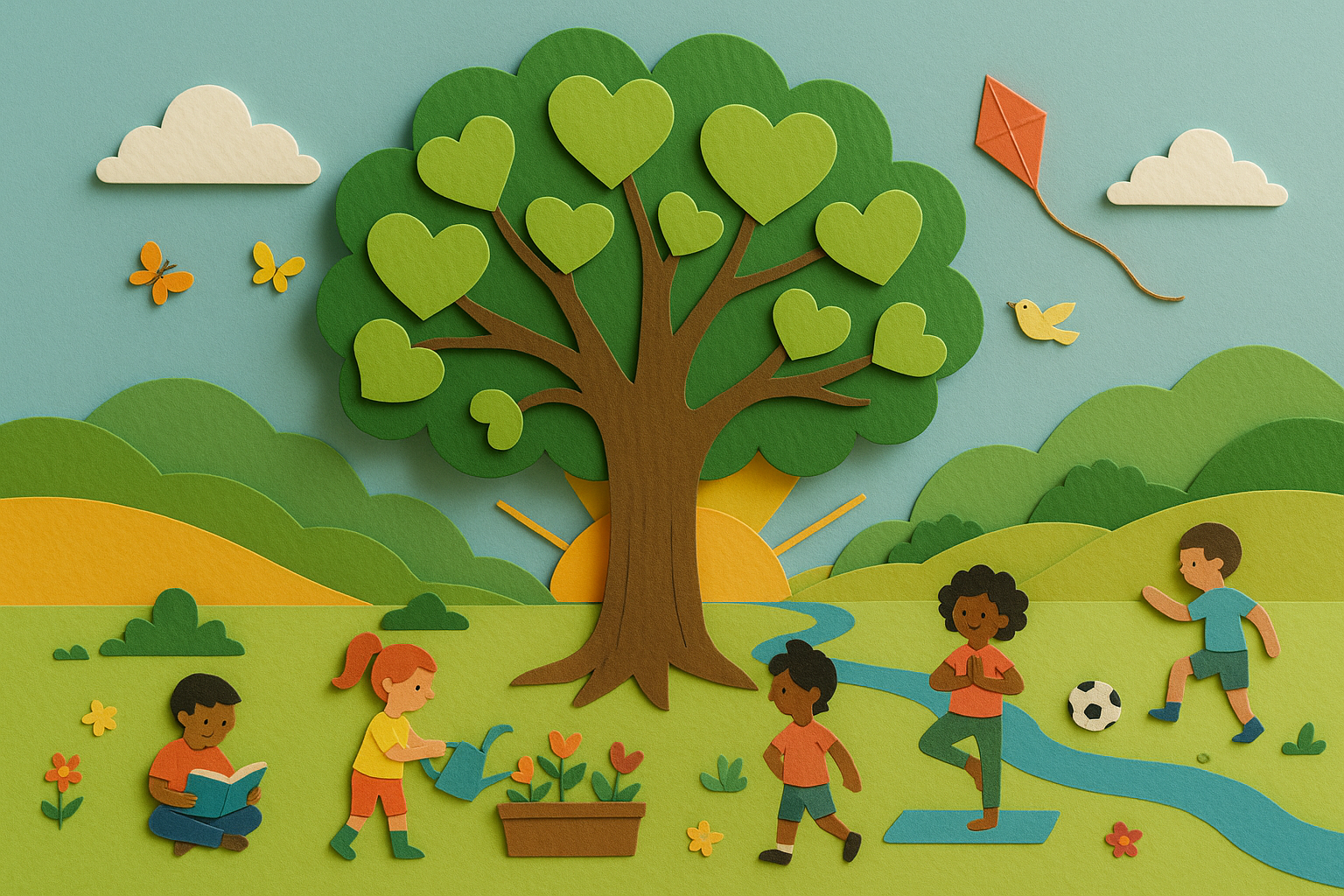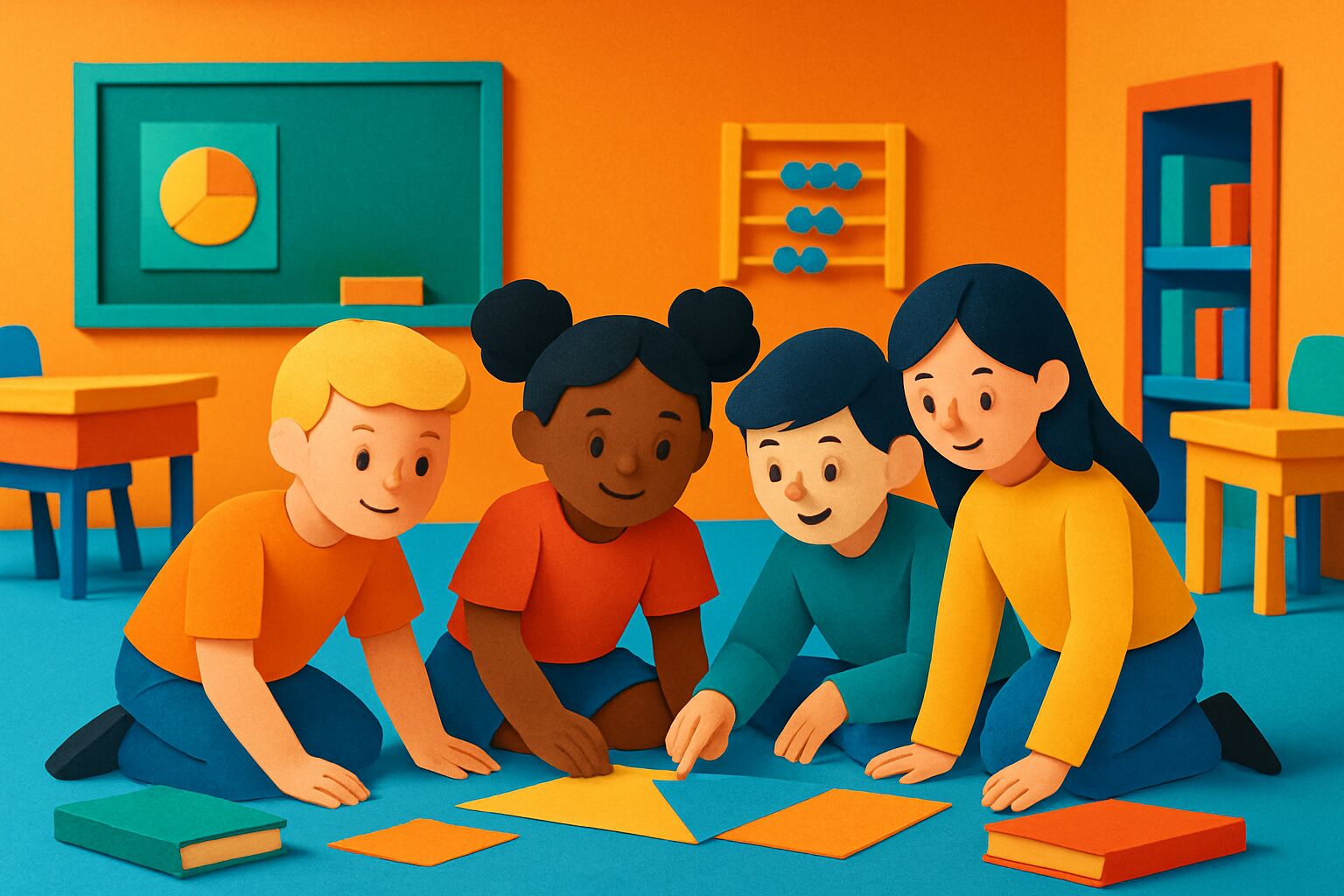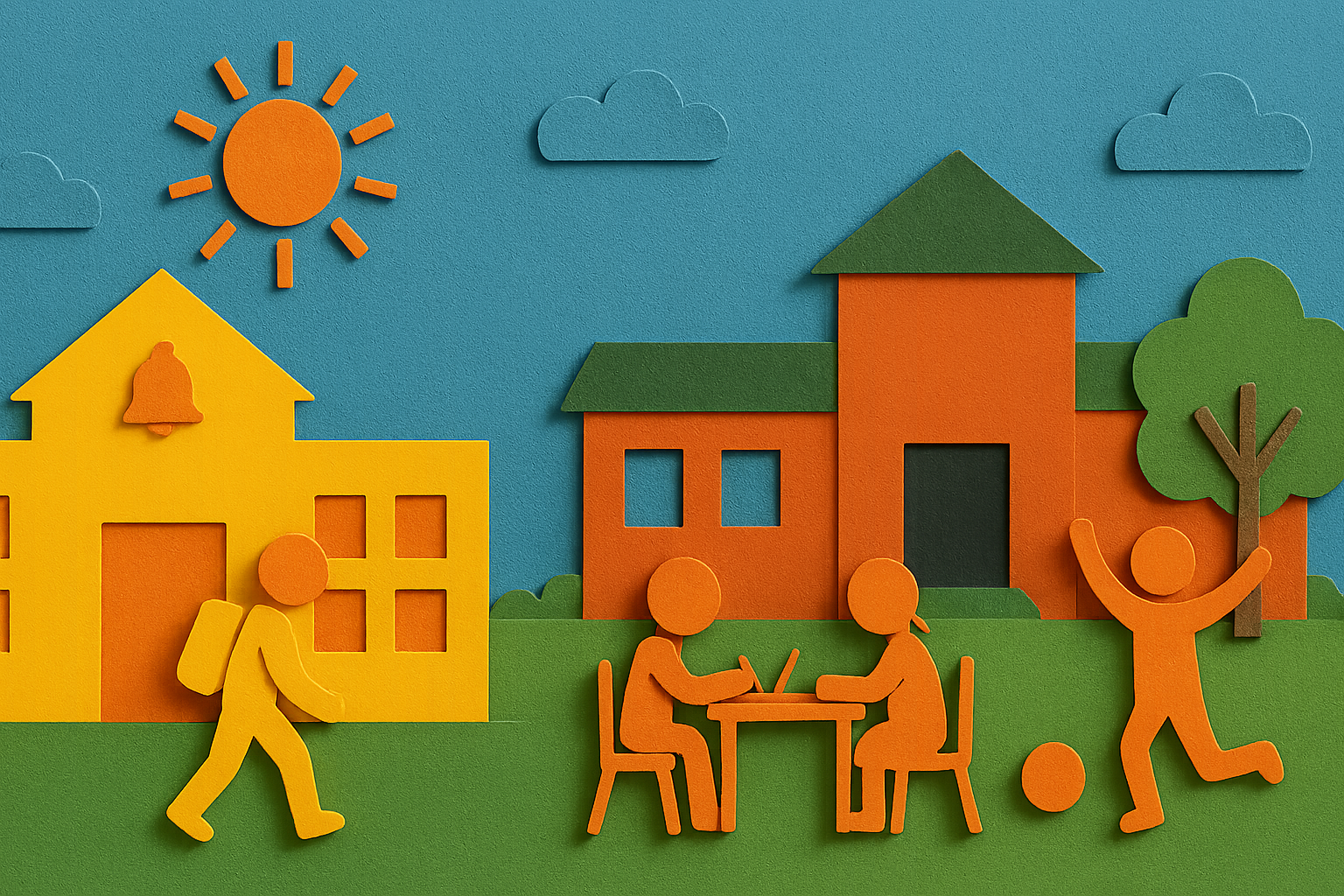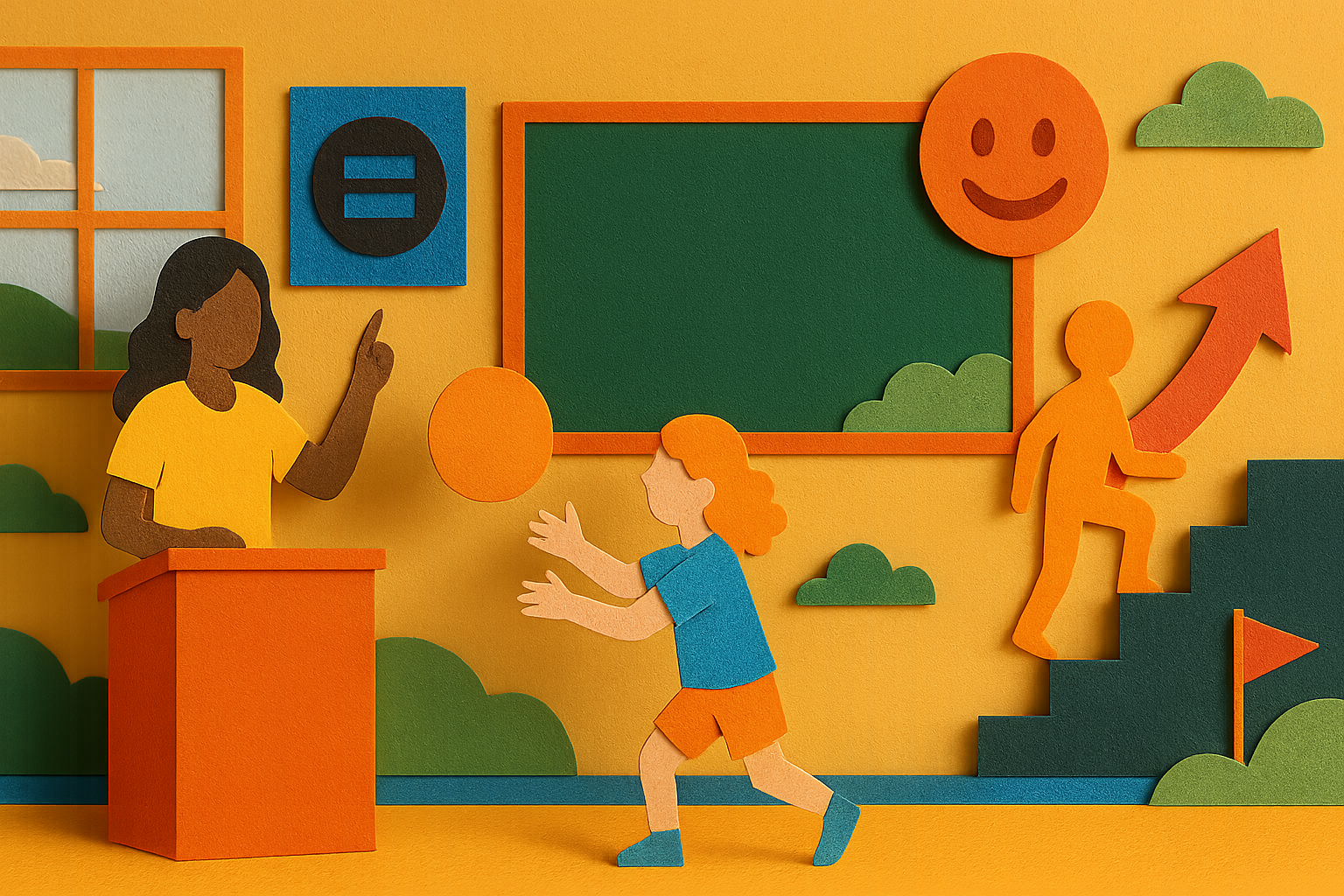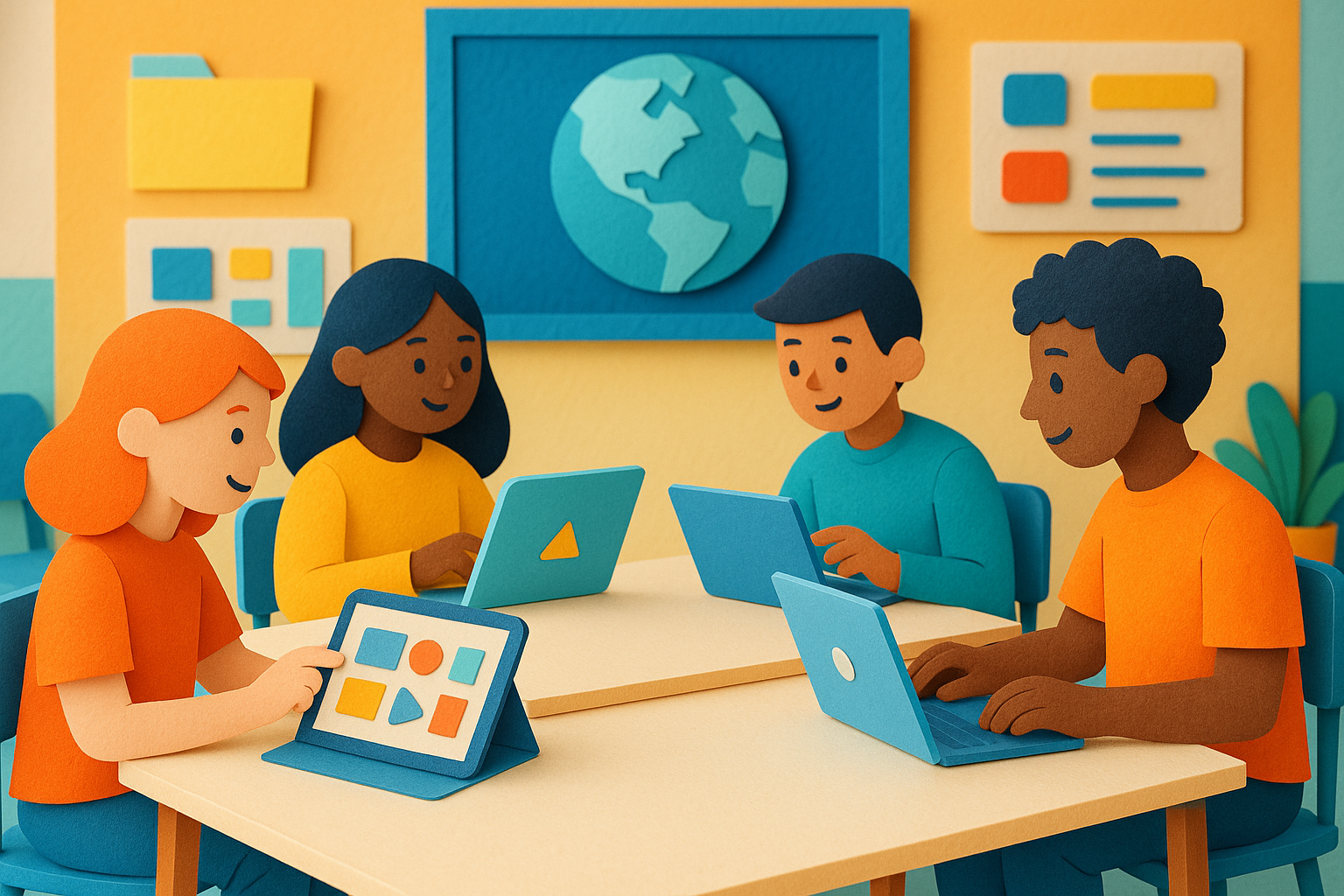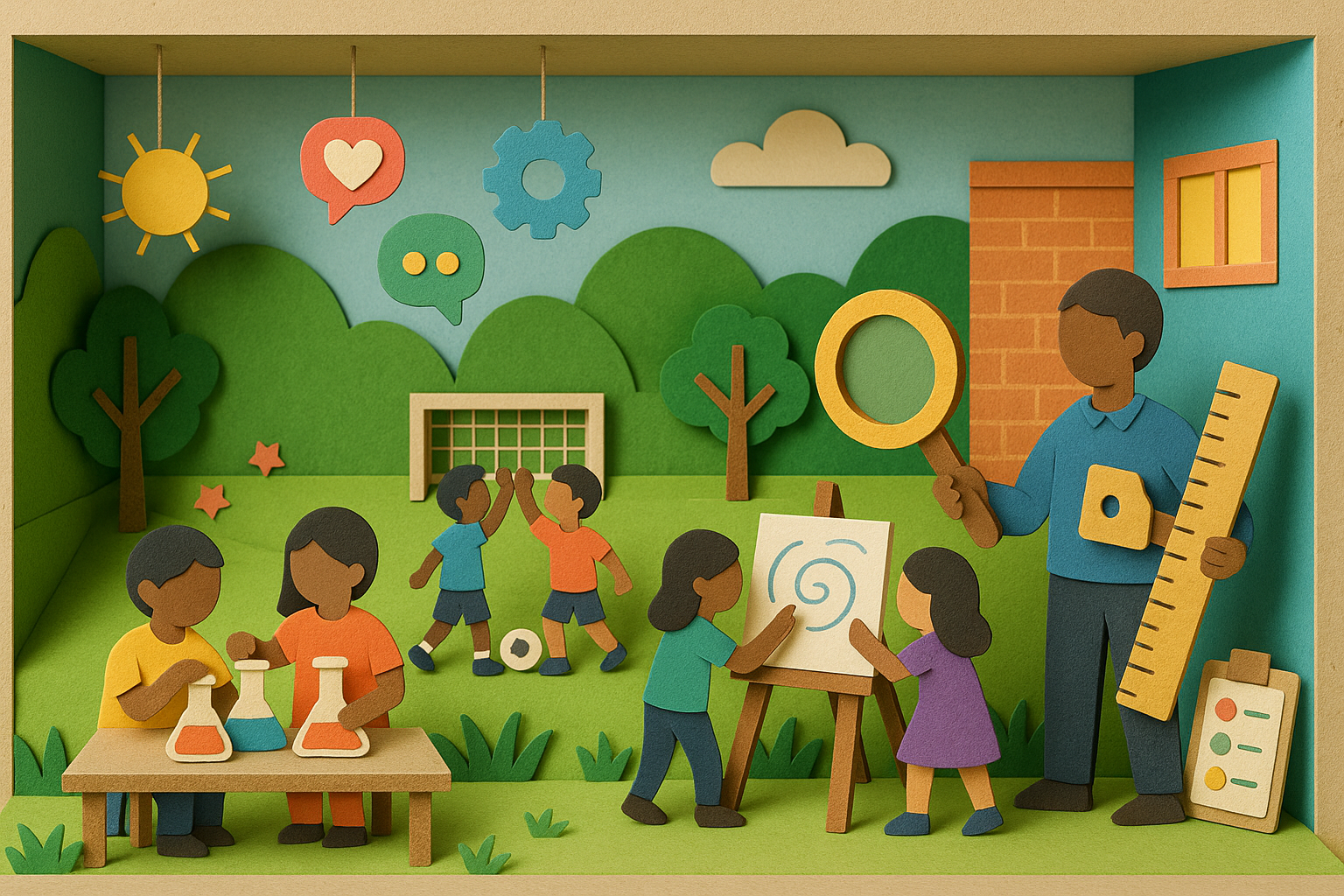Whole Child Development is a holistic framework and concept in education and child development. It emphasizes supporting all aspects of a child’s growth rather than focusing solely on academics. This approach takes the wide view of education, aiming to help children grow in every way possible. This includes their social, emotional, physical, and cognitive development. Because when we nurture the whole child, we see better results in the classroom and stronger social-emotional skills. We see children become more engaged, motivated, and resilient. And we see them learn how to bounce back from challenges.
The Whole Child approach helps ensure every child gets the support they need to thrive. It views children as students who need to learn details and facts but also as complete people with unique needs. Schools and programs can help children become well-rounded by supporting every part of their growth.
Understanding Development Beyond Academics
Traditional education often focuses on standardized tests and measuring academic achievement. In contrast, Whole Child Development recognizes that children are more than just learners. They are individuals with social, emotional, and physical needs that are all interconnected and this approach focuses on success across all metrics.
A child’s well-being in one area can significantly impact their success in others. For example, a child struggling with anxiety may have difficulty focusing in class, while a child who is physically unwell may struggle to engage with their peers.
Due to a culture that often requires everything to fit into a spreadsheet to be tracked, focusing on the whole child is work that is often overlooked, despite best efforts and intentions. But Whole Child Development reminds us to look at the big picture. It tells us that each child is unique and has different needs. And as a response to this understanding, we can create learning environments that are supportive, engaging, and relevant to children’s lives.
Building Strong Social Connections
The impact of positive relationships in children’s development is hard to overstate. These relationships provide children with a sense of belonging, security, and support. They also help children develop important social skills, such as empathy, cooperation, and communication. In school environments, those relationships are the difference between a place they have to go and a place they want to be.
With these strong social connections kids are more likely to be engaged and motivated in school. They are also better able to cope with stress and challenges. Research has shown that social-emotional learning (SEL) programs can lead to significant improvements in academic performance, social skills, and emotional well-being.
There are many ways to promote social connections in educational settings. Schools can create opportunities for students to interact with each other through group projects, extracurricular activities, and community service. They can also implement SEL programs that teach students essential social skills. By fostering a sense of community and belonging, schools can help children build the strong social connections they need to thrive.
Supporting Mental Wellness
Children’s mental health is just as important as their physical health. Mental health affects how children think, feel, and behave - all things that effect the classroom and their lives. Mental health also plays a role in their ability to learn, make friends, and cope with stress. With emotional security, children are more likely to be engaged and be successful learners.
Many factors can impact children’s mental wellness, including genetics, family life, and traumatic experiences. Schools can play a vital role in supporting mental wellness by creating a safe and supportive environment. A place where students feel comfortable expressing their emotions and seeking help when needed.
Another way schools can support mental wellness is by incorporating mindfulness practices into the school day. Activities like deep breathing exercises and guided visualization can help students manage stress, regulate their emotions, and improve their focus. These practices can be easily integrated into classrooms or offered as part of extracurricular activities.
Early intervention is key when it comes to addressing mental health concerns. If you are concerned about a child’s mental health, please reach out to a mental health professional. There are many resources available to help children and families struggling with mental health challenges.
Creating Nurturing Environments
Nurturing environments are essential for Whole Child Development. These environments are physically and emotionally safe places and provide a foundation where students feel secure and respected.
Creating a nurturing environment is a collaborative effort. It involves building positive relationships with children and maintaining a space where they can feel heard and understood. Clear expectations and consistent support add to this space. Additionally, educators can foster a sense of agency by providing choices and encouraging children to take on leadership roles throughout the day.
Nurturing environments are also stimulating and engaging. They encourage children to explore their interests and develop their skills. In these spaces, children feel valued and respected. They develop confidence and independence, which supports their physical, social, emotional, and cognitive development.
Empowering Lifelong Growth
Whole Child Development equips children with the skills and knowledge they need to thrive. This includes building a strong foundation in core subjects like math and reading. It also means nurturing the skills that allow children to manage their emotions, build healthy relationships, and make positive choices.
A house needs a solid frame, but it also needs electricity, plumbing, and a roof to be a livable home. In the same way, children need more than just academics to truly succeed. They need to develop the social-emotional skills that will help them navigate the challenges of life. They need to learn how to communicate effectively, work collaboratively, and solve problems creatively. These skills are important for academic success and are essential for success in the workplace and in many, if not all, areas of life.
By supporting Whole Child Development, we are empowering kids to lead fulfilling lives as engaged and productive members of their communities. We are helping to create a generation of individuals who are not only knowledgeable but also resilient, empathetic, and committed to making a positive impact on the world. By investing in Whole Child Development, we are investing in a brighter future for all.
